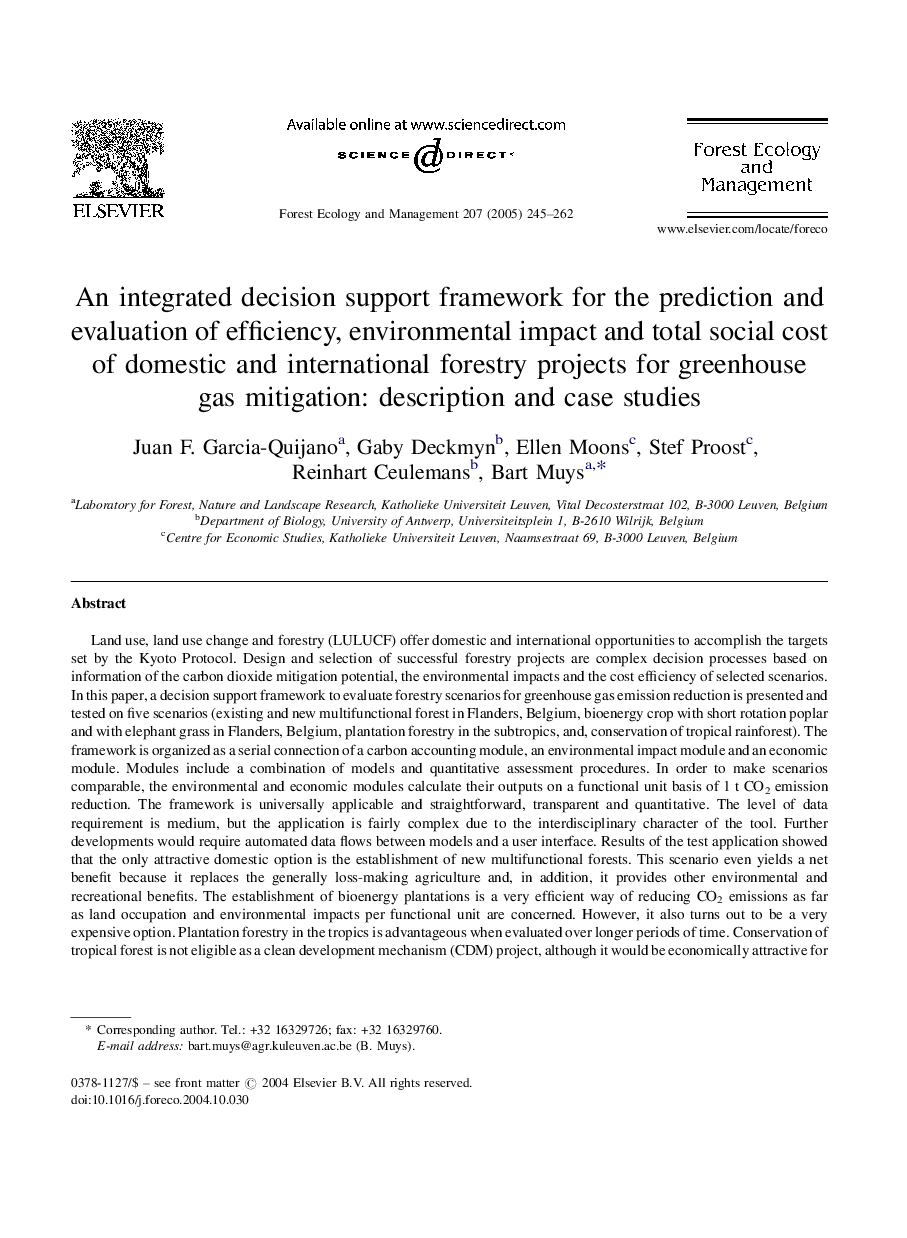| Article ID | Journal | Published Year | Pages | File Type |
|---|---|---|---|---|
| 9620453 | Forest Ecology and Management | 2005 | 18 Pages |
Abstract
Land use, land use change and forestry (LULUCF) offer domestic and international opportunities to accomplish the targets set by the Kyoto Protocol. Design and selection of successful forestry projects are complex decision processes based on information of the carbon dioxide mitigation potential, the environmental impacts and the cost efficiency of selected scenarios. In this paper, a decision support framework to evaluate forestry scenarios for greenhouse gas emission reduction is presented and tested on five scenarios (existing and new multifunctional forest in Flanders, Belgium, bioenergy crop with short rotation poplar and with elephant grass in Flanders, Belgium, plantation forestry in the subtropics, and, conservation of tropical rainforest). The framework is organized as a serial connection of a carbon accounting module, an environmental impact module and an economic module. Modules include a combination of models and quantitative assessment procedures. In order to make scenarios comparable, the environmental and economic modules calculate their outputs on a functional unit basis of 1Â t CO2 emission reduction. The framework is universally applicable and straightforward, transparent and quantitative. The level of data requirement is medium, but the application is fairly complex due to the interdisciplinary character of the tool. Further developments would require automated data flows between models and a user interface. Results of the test application showed that the only attractive domestic option is the establishment of new multifunctional forests. This scenario even yields a net benefit because it replaces the generally loss-making agriculture and, in addition, it provides other environmental and recreational benefits. The establishment of bioenergy plantations is a very efficient way of reducing CO2 emissions as far as land occupation and environmental impacts per functional unit are concerned. However, it also turns out to be a very expensive option. Plantation forestry in the tropics is advantageous when evaluated over longer periods of time. Conservation of tropical forest is not eligible as a clean development mechanism (CDM) project, although it would be economically attractive for Flanders since the cost per tonne CO2 emission reduction is close to the expected world market price. This option is thus promising for the voluntary market and for future commitment periods of the Kyoto Protocol.
Keywords
Related Topics
Life Sciences
Agricultural and Biological Sciences
Ecology, Evolution, Behavior and Systematics
Authors
Juan F. Garcia-Quijano, Gaby Deckmyn, Ellen Moons, Stef Proost, Reinhart Ceulemans, Bart Muys,
